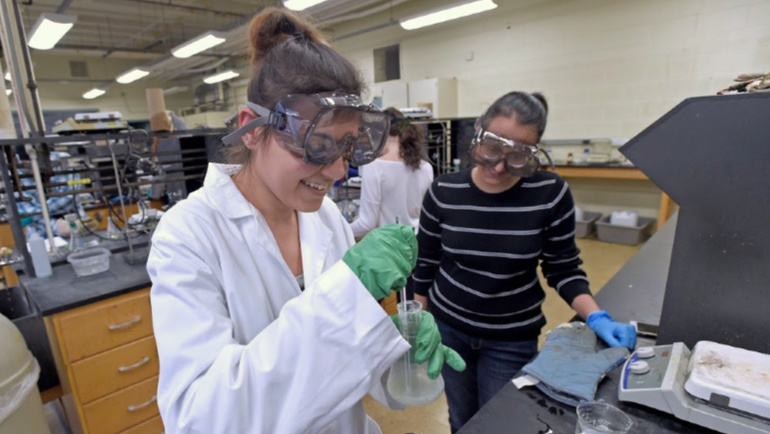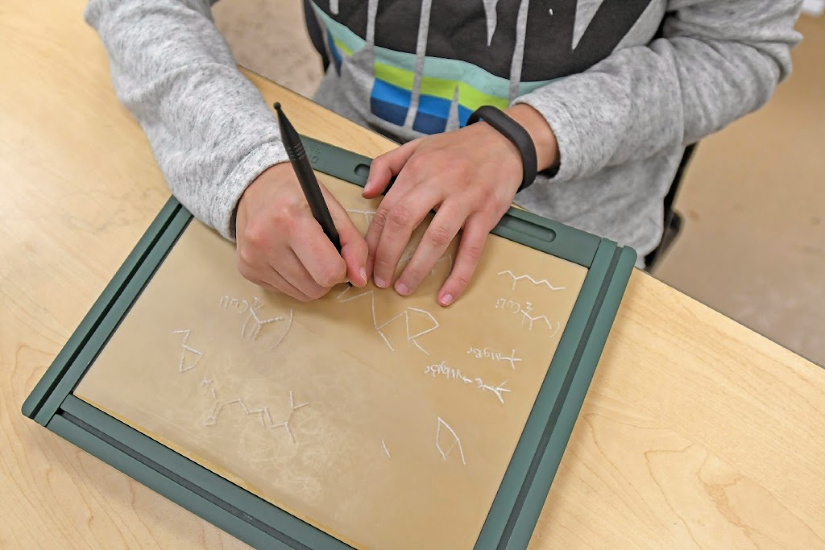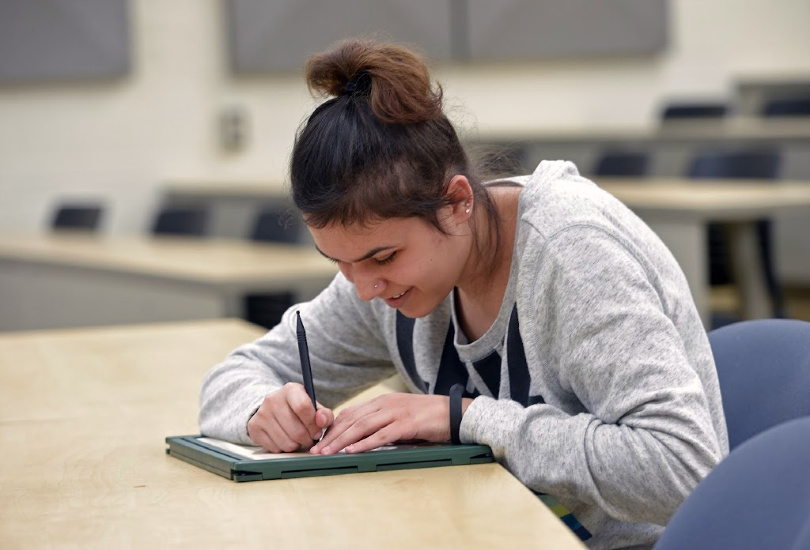
Organic chemistry is a notoriously difficult class in which students must draw and interpret organic structures. The fact that Nicole Kada, a food and nutrition science major, received an A last semester is a nice accomplishment. However, her grade becomes exponentially more impressive when you consider that Kada was born blind.
“That was one of the most satisfying things to happen in my life,” said Kada. “I can’t even read the print versions of my exams and I don’t want to throw them away because I’m like ‘whoa, I got an A in orgo.’”
Kada’s mantra is if you want to make something happen, you do whatever it takes. She wants to become a dietician in a hospital, so in this case it often meant her working on chemistry for seven hours a day. But despite her tenacity, she will be the first one to tell you that her A was a team effort.
The Southfield Lathrup graduate is one of 1,500 students who have received support from the Student Disability Services office during the last two years.

In Kada’s case, Student Disability Services (SDS) helped arrange tutorial support from a student who had already completed organic chemistry. SDS works in partnership with the Michigan Bureau of Services for Blind Persons to coordinate this support.
“The main thing I really need is someone that can take what we’ve learned in class and outside of class repeat it to me and go over it with me in a way I can understand it because organic chemistry is all molecules, I can’t see them, I can’t see the shapes put on the screen, so I have to have someone describe the molecules to me and how the reactions work,” said Kada.
Student Disability Services also bought Kada a raised line drawing kit that allows her to feel the molecules drawn by her tutor so that she can do more than just imagine them. It also allows her to draw the molecules.
Located on the first floor of the Adamany Undergraduate Library, the Student Disability Services office provides reasonable and appropriate accommodations for any student with a disability documented by a qualified evaluator, such as a medical doctor or psychologist. Accommodations may include extended time to take exams in a distraction-reduced environment. Wayne State is fortunate to have 12 exam/study rooms dedicated for this purpose. During the latest final exams, SDS administered 408 final exams in five days.

Randie Kruman, director of the SDS, has been working in the field for 40 years. She says the top diagnosed disability at Wayne State, and nationally, over the last two years is anxiety and depression. Other examples of disabilities include ADHD, autism, Crohn’s disease, and epilepsy.
It is incumbent for students to register with the SDS and provide faculty members with a copy of their accommodation letter each semester. Faculty are not allowed to ask a student what their disability is, but they are encouraged to include language about the SDS in their syllabus.
“We have a great relationship with our faculty because we are helping them support students in their classes be successful,” said Kruman.
Her advice to students is simple, “Come find us before it’s a crisis, everything is confidential. We’re here to ensure your academic success.”
The SDS office has three disability specialists, an exam coordinator, two testing technicians, and an academic service officer to staff the front desk. It also has a part-time technician who fulfills student requests for alternate format textbooks. For example, Kada has braille math books for algebra and trigonometry.
As for chemistry, Kada is currently taking Organic Chemistry II.
“If I get an A in orgo II, which I tell people I’m going to, I’m going to get a tattoo of a molecule and I’m going to draw it myself," Kada said. "So, in the future when my kids tell me that they can’t do something, I’ll show them my tattoo and say, ‘yes you can.’”
